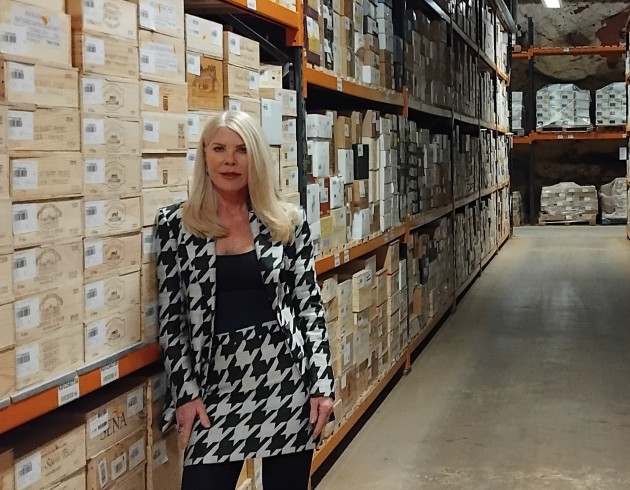
International Women’s Day: ‘There’s more to logistics than driving a forklift’
In what is still perhaps the most male dominated part of the wine and spirits industry, Jane Renwick, director of fine wine at London City Bond (LCB), is on a mission to imbue women with the confidence to pursue a career in warehousing and logistics as part of the celebrations for International Women’s Day (8 March).
As the first and only female board member at LCB, Renwick knows a thing or two about working in a mostly-male area of the industry.
Over her 30-year career however, which has progressed from roles as a PA at Octavian and in commercial management to the board of the largest and most successful privately-owned tax warehousing company in the UK, Renwick is eager to encourage more women to put aside self-prejudices and bring their skills to the world of logistics.
“Historically, women haven’t really been part of warehousing and logistics because of the physical parts of it… But we have to start looking beyond [this part of the sector] as just being able to drive a forklift, as there really is such a broad range of knowledge and skills involved. When it comes to stock management and the work that women do, you can really see the value. Women contribute attention to detail, problem-solving and strategic thinking, which are invaluable skills. It sometimes is chalk and cheese when it comes to male/female working styles,” Renwick quipped.
“Coming into a very male role,” Renwick added that becoming the first woman on the board was a “big opportunity for me. It enabled me to look at the entire business”, including encouraging and supporting women through accreditations such as the Bonded Warehouse Association (BWA) Certification, which focuses on customs and excise education.
Of the seven recent students put forward by Renwick at LCB, six were women – the majority of which passed with distinction.
“So women are finding a place, but they are still not represented as much as men in this part of the industry,” Renwick added.
Having a diverse, agile working base is perhaps more important than ever in these straitened times. In her role as head of fine wine across LCB’s 16 sites, she has seen noticeable inventory pressure where there is a reluctance to make long-term investments among fine wine clients and supply regularly outstrips demand.
“The key is understanding the value of fine wine, as it means different things to different people. It’s also about building relationships: there aren’t many products which cost £100,000 that the client isn’t going to ever actually see. They need to trust that you’re going to look after it, and that the journey beyond the warehouse is going to be just as good as the other stuff. As the saying goes, ‘you’re only ever as good as your last delivery’.”
Despite the challenges, Renwick is confident things will change: “The product is super robust. We just need to have to have faith while also being flexible with low & no making such headway and people generally drinking less. We have to accept that storage needs might look slightly different.”
Returning to women in the supply chain, things are also changing, though there is still a lag when it comes to seeing women in leadership roles. In hospitality, for example, women comprise 60% of the hospitality workforce, while only 11% are represented in senior management roles (People 1st. Insight Report: Women Working in the Hospitality and Tourism Sector).
In logistics, there is still a male-dominated culture where male clients can often be bullish down the phone with younger women on the team. However, as Renwick said, it’s all about instilling confidence in women who can – and routinely do – excel in the job.
“I think there is still an element of women having to have slightly better knowledge of the industry, as they don’t have the physical strength. Because of that, there are situations where supervisors would potentially naturally approach a male. But I hope that women see someone like me, who has worked their way up from being a PA to director level, that women are very capable of progressing up the chain of command. The key challenge for women coming in is getting to know everything about warehousing and logistics. That’s my advice: get to know the product and the sector extremely well. Hands on experience is the way to do that,” she concluded.




